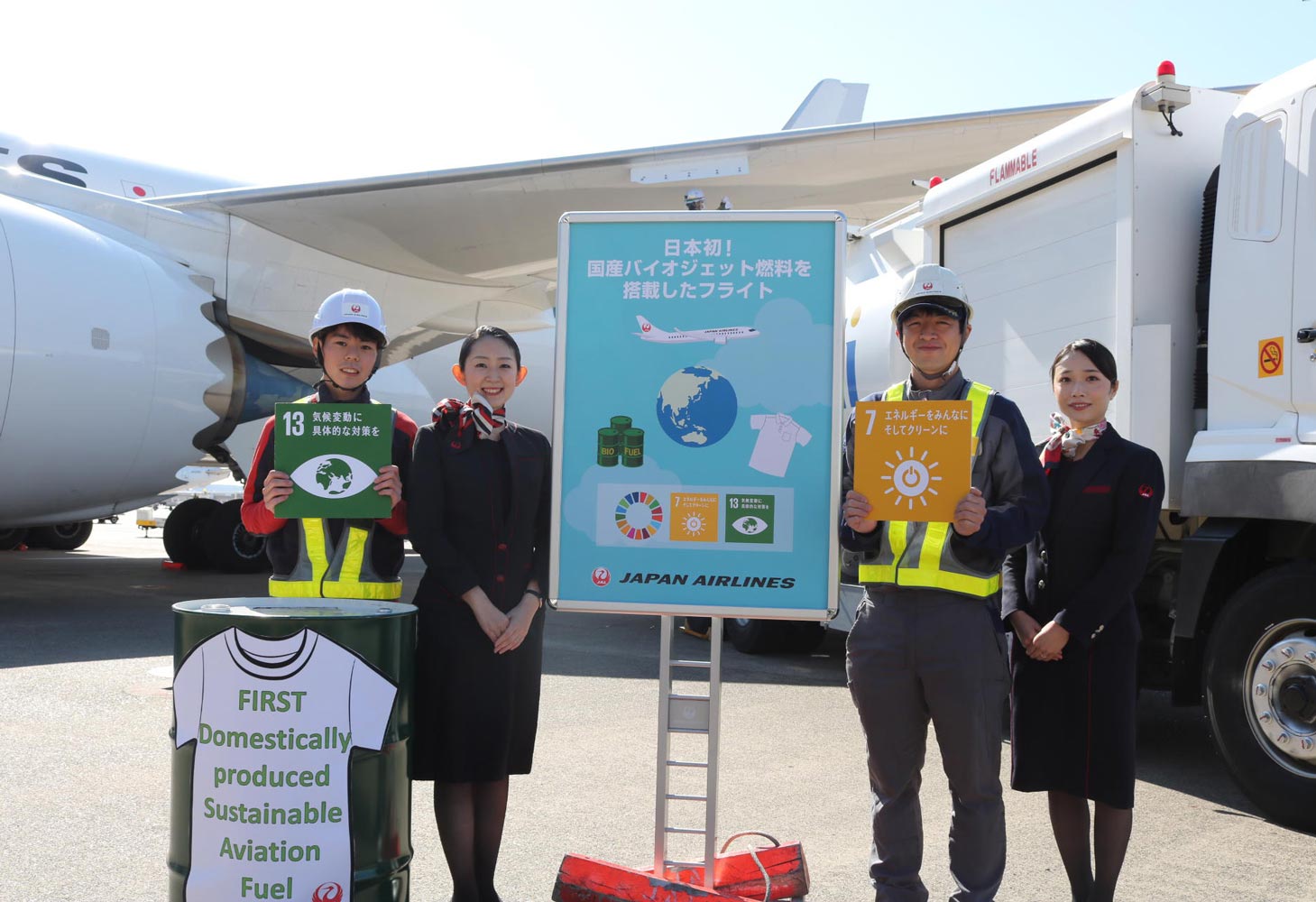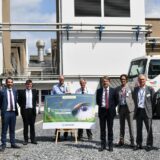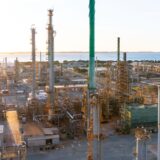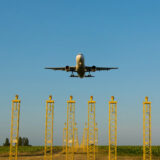
JAL conducts test flight using SAFs produced in Japan
Japan Airlines (JAL) conducted its very first flight on June 17, using two different sustainable aviation fuels (SAF) produced domestically in Japan.
JAL conducted a test flight from Tokyo (Haneda) airport to Sapporo, Japan, with 3,132 liters (9.1% mixing ratio) of SAF produced domestically in Japan added to existing jet fuel. The SAFs were manufactured by Mitsubishi Power, Ltd./Toyo Engineering Corporation/JERA Co., Inc. from wood chips and by IHI Corporation from algae. It was the very first attempt to load two different SAFs on the same flight.
The test flight was part of the “Development of Production Technologies for Biojet Fuels” project under the New Energy and Industrial Technology Development Organization, a Japanese national research and development agency.
Based on the roadmap for achieving net zero CO2 emissions in FY2050 set out in the JAL Group’s Medium-Term Management Plan for fiscal years 2021-2025, JAL will continue to develop and utilize SAF in collaboration with stakeholders.
To achieve net zero CO2 emissions by 2050, the JAL Group is aiming to switch to using 10% SAF, to keep its total emissions below 90% of its fiscal year 2019 emissions.
JAL plans to use SAF on flights departing from North America in cooperation with Fulcrum BioEnergy, Inc., an American company in which JAL has a stake. In addition, since most of the fuel used by the JAL Group is refueled in Japan, the establishment of a domestic production system is also an important issue. Thus, JAL is conducting a feasibility study with domestic companies on manufacturing and selling SAF in Japan from waste plastic.














